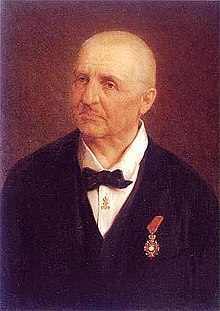We have just been surprised. Although not among the most mighty, after flooding Manila, where it even breached the thought-to-be impregnable US embassy, Typhoon Nesat sneaked up and launched a Blitzkrieg attack on us. It came as quickly as the stock market downturn and caught many off-guard. In HK now, it is Signal 8, hoisted only when the gale has reached the greatest strength. Miraculously, it even managed the Herculean task of closing the stock market, at least for the morning, to give many people a needed respite. You know, in HK, many would rather close their own shops and cut out their own family than to close the stock market. What else is there to do?
Global warming is changing the world weather landscape. There is controversy, but many experts believe global warming at least increases the intensity, if not frequency, of super storms (for one such view, read National Geographic). Judging from what the Philippines and Taiwan have endured in the past decade, I'd think that is indeed the case. But we in HK have mercifully witnessed a reversed trend; the typhoons have been scrupulously avoiding us, and even when they did visit they have been relatively tame. And there are few precious pigs left in HK to rescue; the only creatures left are pigs of another kind, the big businessmen and, unfortunately the majority, their slaves. Don't you, like I, find this piglet has a more human face, and hence more photogenic than the Li's?
For those in the West, a state of emergency would have been declared for a comparable hurricane, and people along the coast evacuated. No such thing here, not to mention poor Philippines. Last time when the hurricane hit New York, my uncle in Taiwan, a country (yes) frequented by typhoons, called my mother in NYC several times out of concern. This is ironic to me: he did so because of the big deal made out by the influential US media; but we who are used to typhoons never call him when devastating storms hit Taiwan. Well, in any case Taiwan is almost not in the world media map.
Don't these storms all have mysterious and romantic sounding names! Composers of the past just might have written a tone poem or two on these terrifying water spirits. But not in this anti-romantic age of ours. Perhaps one day some composer shall write an opera on the Wenzhou train disaster; may be John Adams? Would a Chinese composer ever be allowed to do so?
One day when you are trapped indoors, I do hope you have this 1979 masterpiece by Swiss Max Frisch with you (wiki entry). This morning, I identify with the protagonist.
For us audiophiles, we usually listen to music (well, mostly, I hope) more than we read books. My recent crop from the library yielded some surprises and a few lemons. Come to think of it, almost down to the last one, the audiophile is a man in the Holocene, obsessing over the insignificant and largely oblivious to the world-at-large.
Why do we listen to certain CDs? For audiophiles, for sure sound quality counts. But you and I know the vast majority of audiophile CDs don't cut it musically, nor are necessarily better recorded. Which is why many audiophile labels spend a lot of ink touting their artists.
John Marks Records is the label of John Marks, now writer for Stereophile. Being a subscriber, I must say I find his articles rather mundane, not as interesting as Steven Mejias, not to mention Art Dudley. But we are not concerned about his writings, what about the CDs?
JMR is most famous for their first release, Songs My Mother Taught Me, a collection of violin miniatures played by JM's friend, violinist Arturo Delmoni. This CD's audiophile credential is evidenced by the oop and sought-after Original Masters Recording issue.
I don't own this CD, but of course have heard it before, a cut here and there. But recently, our library acquired a few of them, allowing me in-depth examination. I listened to Songs on my main system, and was surprised by the rather lukewarm playing, refined in a way, with nice tone, but lacking in tension. Since most are encore pieces, they are not supposed to sound this way. The faster the music, the more metronomic here. This album I note has been well received in the classical music press, but I am not too impressed with it.
On the other hand, the Faure and Franck disc (apparently some LP still available), also well received in the classical press, comes as a nice surprise and is overall the best of the lot, indeed an intimate performance. The Faure is quite fluent, no easy task, and the Franck retains a freshness that makes it listenable.
Overall, despite the excellent sound on offer, with the possible exception of the Faure disc, I perhaps would rarely return to these albums. While I respect Arturo Delmoni's musicianship, and have even heard him live as concertmaster and soloist of New York City Ballet Orchestra (here), despite his nice tone I often find his lack of rhythmic flair and tension distracting. I also find his playing sometimes quite empty between the notes. Perhaps notes are not being given full value? Curiously, on the cheap desktop speakers I have less reservations.
There are just too many great recordings to choose from, many in sonics just as good, to make these competitive.















No comments:
Post a Comment